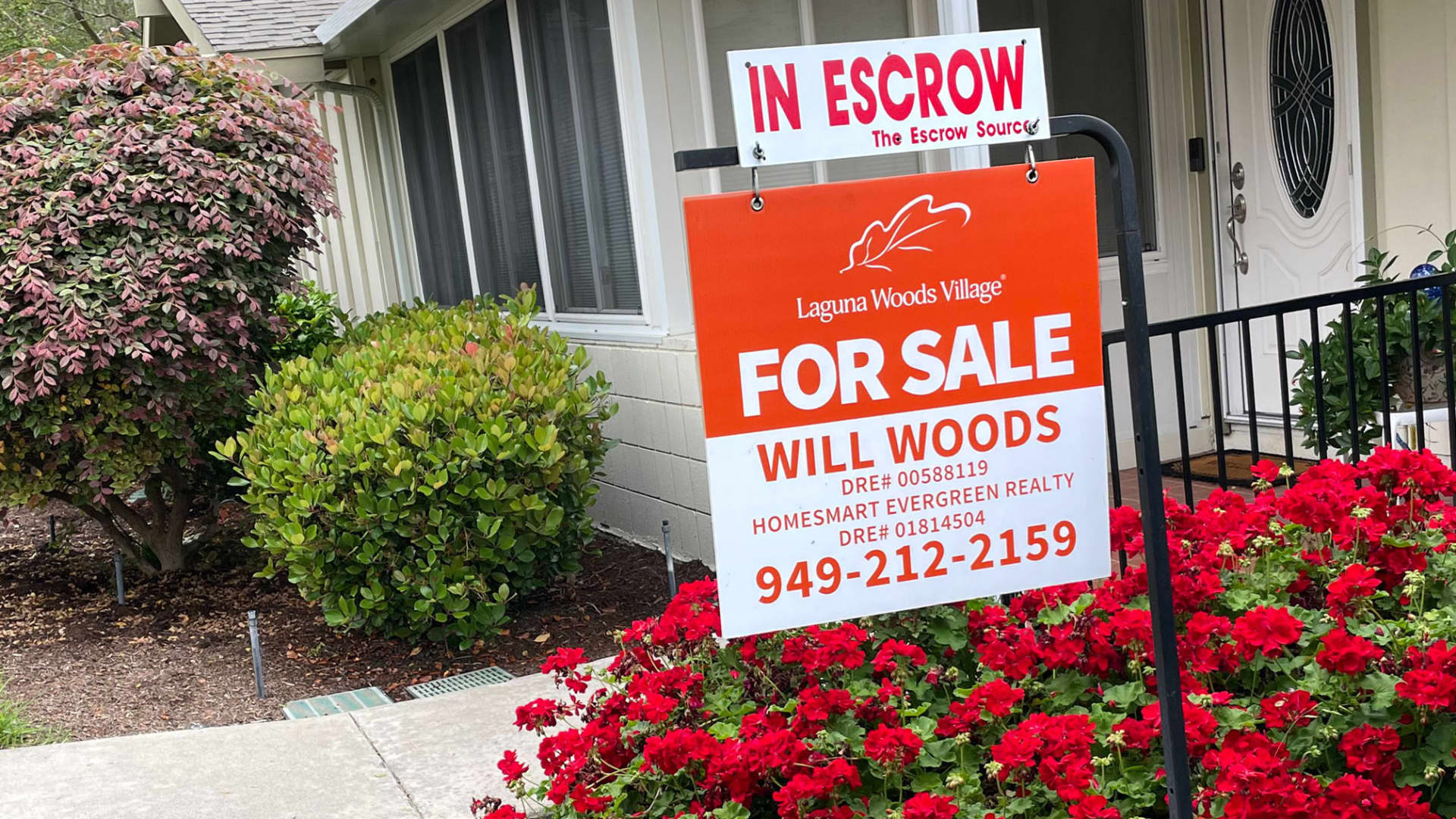Anyone out shopping for a home on the resale market knows the pickings are slim. They’re about to get slimmer.
The number of homes for sale this month was actually 7% higher than June of last year, according to Realtor.com. But, in just the last week, that comparison went negative, with the number of homes for sale falling below year-ago levels for the first time in 59 weeks.
New listings in the last week of June were down 29% from the same week a year ago. That’s a wider drop than previous weeks.
With mortgage rates surging ever higher, crossing over 7% again on the 30-year fixed Thursday, according to Mortgage News Daily, homeowners have very little incentive to sell their homes. The vast majority of homeowners with mortgages have rates below 4%, with some even below 3%.
An even tighter housing market ahead means home prices are unlikely to cool. Prices peaked last June, after rising over 45% from pre-pandemic levels. They began to fall because mortgage rates had doubled in a matter of months. But prices bottomed in January, according to the latest S&P Case-Shiller home price index, despite still higher interest rates and slower sales.
“The ongoing recovery in home prices is broadly based,” Craig Lazzara, managing director at S&P DJI, said in a release.
Pending sales, which measure signed contracts on existing homes, fell nearly 3% in May from April, according to a report Thursday from the National Association of Realtors.
“Despite sluggish pending contract signings, the housing market is resilient with approximately three offers for each listing,” NAR’s chief economist, Lawrence Yun, said in a release. “The lack of housing inventory continues to prevent housing demand from being fully realized.”
On the flip side, the nation’s homebuilders have been big beneficiaries of the tight market, seeing sales jump 12% in May from April, according to the U.S. Census. Higher mortgage rates have been less of a factor, as builders, some of whom have their own mortgage arms, have been buying down rates for buyers. In May, there were twice as many homes that were sold but hadn’t been started as there were a year ago.
While single-family housing starts are finally increasing, they are still well below historical levels. Builders have also been underbuilding since the great recession, meaning the market was undersupplied well before the recent, pandemic-induced run on housing.
“Bottom line, for all the excitement in the home builders because of the need for more supply, the existing home market is depressed and experiencing a serious case of stagflation with little transactions taking place but at still very high prices,” wrote Peter Boockvar, chief investment officer at Bleakley Financial Group.
